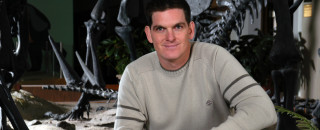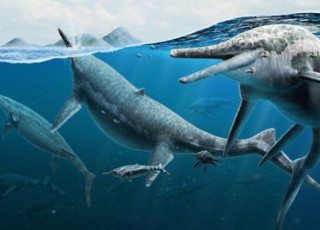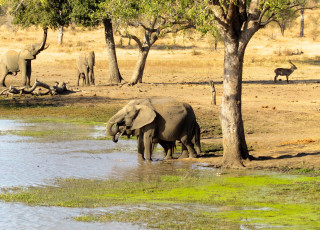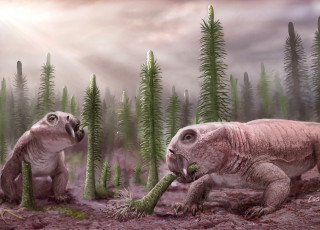The Extinction of Experience: Can Love of Place Save the World?
Children growing up early in the 21st Century spend 90% less time outdoors than youngsters did just one generation ago. Indoors, they stare at screens for 7-10 hours a day, replacing real-life experience with virtual alternatives. Among the negative health consequences of this indoor migration are skyrocketing rates of obesity, diabetes, and attention-deficit disorder. The growing separation of humans from local nature also threatens the health of the environments that sustain us. How does this loss of connection place affect our chances of — and even desire to — conserve and protect the natural world?
In an engaging lecture on Sept. 27th at the University of Utah — titled the Extinction of Experience: Youth, Nature, and Sustainability in the Digital Age — Dr. Scott D. Sampson, Research Curator at the Natural History Museum of Utah and Adjunct Professor of Geology and Geophysics at the U, will address how we might broker a new human-nature relationship in this globally-interconnected digital age.
A renowned paleontologist, biologist, and educator, Dr. Sampson served as the primary scientific consultant and host of the Discovery Channel’s Dinosaur Planet, and is widely known as “Dr. Scott,” host and science advisor of the PBS KIDS series Dinosaur Train.
Tapping into recent research that spans psychology, anthropology, and education, Dr. Sampson will present his provocative new idea, the “ Topophilia Hypothesis,” which proposes we all have an innate bias to form emotional bonds with local nature. He will also offer a novel, integrative approach for connecting children and youth with the natural world, and discuss the roles of parents, educators, universities, and museums in this pressing challenge.
The lecture will be presented by Continuing Education at the University of Utah in partnership with the Natural History Museum of Utah (NHMU). “Dr. Sampson’s work has broad cultural implications that span parenting, education, architecture, city planning, politics, religion, and the arts,” said Dr. Sarah George, Executive Director of the NHMU. “His message is vital for our time.”
The 61st Annual Frederick W. Reynolds Lecture will be held on Sept. 27, 2011 at 6:30 p.m. in the Rice Eccles Stadium Varsity Room, followed by a dessert reception and book signing. The lecture is free and open to the public — and will include hands-on activities for adults and kids over 8 beginning at 5:30 pm — but RSVP is required. To RSVP, call 801-585-0911, or visit continue.utah.edu/reynolds.
About the Frederick W. Reynolds Lectures at The University of Utah
Each fall, Continuing Education at The University of Utah presents the annual Frederick W. Reynolds lecture in order to answer hard questions, provide insight into exciting aspects of the University and give the community a glimpse into the future of higher education in Utah.
Many distinguished university faculty members have taken part in the annual lecture, always providing a stimulating (and sometimes controversial) evening for audience members. Free and open to the public, the series opens the University and academia to the community, providing a forum for citizens to learn more about what is happening at the U.
About Dr. Sampson
Scott Sampson is a renowned dinosaur paleontologist, evolutionary biologist, and science communicator who presently serves as Research Curator at the Utah Museum of Natural History, and Adjunct Associate Professor in the Department of Geology and Geophysics, University of Utah. He also sits on the board of the directors of the Denver Museum of Nature and Science. Sampson has published numerous scientific and popular articles, and has lectured extensively to audiences of all ages on dinosaurs and evolution.
Sampson was the primary scientific consultant and on-air host of the four-part Discovery Channel series Dinosaur Planet. Appearing as “Dr. Scott the Paleontologist,” he is presently serving the same pair of roles for the PBS KIDS television series Dinosaur Train, produced by the Jim Henson Company. Sampson recently completed a book, Dinosaur Odyssey: Fossil Threads in the Web of Life (University of California Press, 2009), the first comprehensive review of dinosaur paleontology for a general audience in more than two decades.
His scientific research has focused on the ecology and evolution of Late Cretaceous dinosaurs, and he has conducted fieldwork in a number of countries, including Kenya, Zimbabwe, South Africa, Madagascar, Mexico, the United States, and Canada.
Press contacts and links
-
Press Contact
Beth Mitchell



